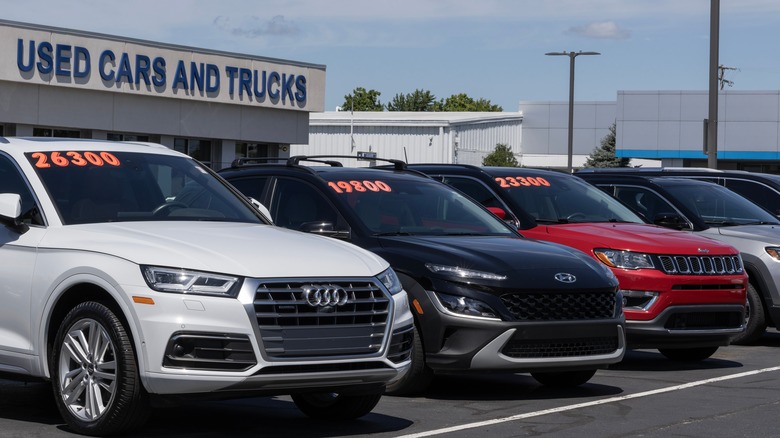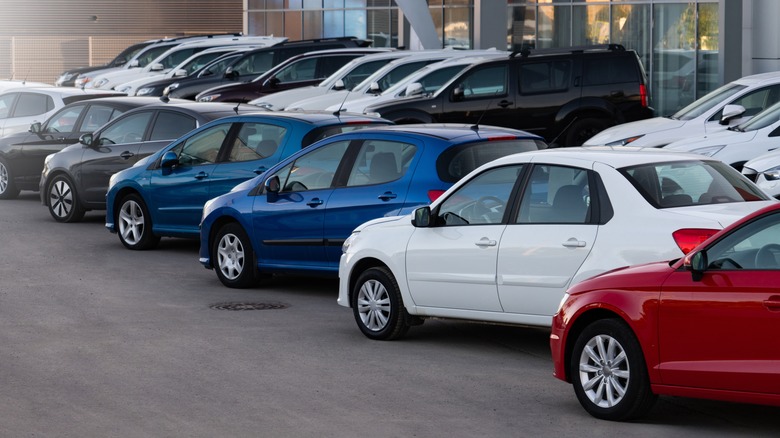Why Used Cars Aren't Getting Cheaper
For a while, it looked like used car prices were finally going down. After peaking in 2022 due to pandemic-driven supply shortages, prices dropped by 14.9% in 2023 from the prior year. But now, the decline has stalled, and in some cases, reversed. The average used car price in the U.S. was $25,128 in January 2025, down from its 2022 high of $28,000 but still far above pre-pandemic levels.
If you're hoping for used car prices to crash back down to 2019 levels when you'd easily get a three-year-old car for $23,000, don't hold your breath. That kind of deal has all but disappeared, along with the market conditions that made it possible. In 2025, supply is still tight, demand for used cars is strong due to the Trump-imposed tariff of 25% on imported new cars and their parts, and the pipeline for affordable vehicles hasn't recovered.
Even as headlines suggest prices are softening, many buyers are still facing a market that's both more expensive and competitive than before the pandemic. But it's not just inflation or market noise. There are structural reasons, in part due to the pandemic and the market conditions, why used cars remain expensive. And if you're in the market for a vehicle under $20K, the reality is grim: those options are vanishing fast. Here's what's really keeping used cars expensive in 2025 and beyond.
COVID wrecked the supply, and it's not recovering
The core reason why used cars are still expensive? There just aren't enough of them. When COVID hit, automakers slashed production and shut down factories. At the same time, a global chip shortage crippled new car output. That meant fewer new cars were sold from 2020 to 2022, and fewer new cars then means fewer used cars today.
Lease returns dropped significantly as people stopped leasing new cars during COVID. Leases are a major source of lightly used, late-model cars, typically returning to the market after two or three years. In 2020 alone, leasing fell from 34% of new car sales to just 19% by 2022. That gap is still working its way through the market, with 2025 having seen the lowest rate for three-year-old lease returns in 12 years.
Rental car companies, which usually flood the used market with lightly used fleet vehicles, also held onto cars longer than usual. By late 2022, only around 513,000 vehicles were sold into rental fleets, down from nearly 1.5 million during the same period in 2019. That drop means fewer off-rental vehicles are now showing up at wholesale auctions, contributing to the ongoing shortage of newer used cars. And don't expect a rebound soon. Automakers are still being cautious with production volumes to keep prices high. The supply of used vehicles under $20,000 was down 30% from pre-pandemic levels in 2023. For anyone shopping in that price range, the shortage is very real and ongoing.
Dealers and automakers are okay with fewer cheap cars
There's another reason prices aren't falling: no one in the auto industry really wants them to. Before the pandemic, dealers operated on volume, selling as many cars as possible. But during COVID, when inventory dried up, they learned to make more profit per vehicle. That model stuck. Now, even as supply improves, many dealers are avoiding price drops to protect margins. Fewer cars, higher profit per sale. That's the new normal.
Automakers are playing the same game. Instead of flooding the market with low-margin economy cars, they're focusing on SUVs, trucks, and premium trims. Entry-level sedans are getting phased out. Ford, for example, no longer sells the Fiesta or Focus in the U.S. That means fewer cheap new cars entering the market, and fewer affordable used ones later.
High interest rates aren't helping either. Monthly payments on used cars now average over $500 a month, which prices out many budget buyers. Those who can buy often stretch loan terms to six or seven years, delaying the return of those cars to the used market. The interest rates are even higher when it comes to leasing a used car. There's little downward pressure on prices. Unless something big changes, used car affordability isn't coming back anytime soon.


